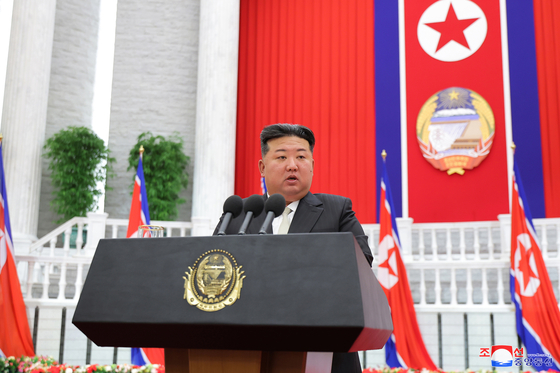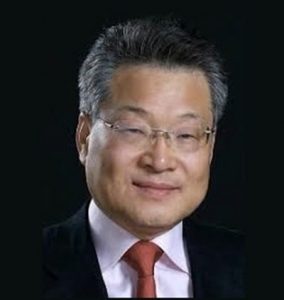William J. Perry, the wise former US Secretary of Defense, who did the in-depth review of US policy toward North Korea for the second Clinton Administration, concluded that, “We have to deal with the North Koreans as they are, not as we wish them to be.”
For Koreans, the same applies today, and in the future, not only for North Korea, but for the world at large as well. But… how are the North Koreans… and the World? And, given how they are, how to deal with them?
For South Korea, both are challenges that need a coherent analysis and a consistent response. All around there is change.
Kim Jong Un has declared an end (at least from his regime’s point of view) to hopes for Korean unification. South Korea is now a separate state and an “absolute enemy.”
North Korea is moving even closer to China (even if fundamental prickliness remains), and much closer to Russia, and is trying to cozy up to Iran and the BRICS economic grouping, making international sanctions less relevant.
It is hell bent on developing its nuclear weapons and delivery systems. Gone is the optimism of Moon-Kim and Trump-Kim of 2018. The long, humiliating train ride back from Hanoi in February 2019 after the failed Trump summit, and the failure of Moon Jae-in to be able to follow through on the 2018 agreements, have taken their toll.
But North Korea and South Korea still share a common language, customs, history, and peninsula. Kim Jong Un can’t change that. He is a maximum leader, and the nukes and the repudiation of unification are a result of his decisions and his will. But he is not immortal. He will die someday.

The Communist Party of China, under XI Jinping, seems bent on trying to recreate some past myth of Chinese power and glory; it may lead to an invasion of Taiwan and confrontation in the South China Sea. Certainly, it is leading to coercion as a strong element of Chinese policy.
Likewise, Vladimir Putin in Russia has decided to try to create his vision of past Russian, or Soviet, glory and power. The result has been violence and coercion and confrontation with Europe and the US.
But how much of Chinese and Russian revanchism is just Xi and Putin, and how much is a part of fundamental driving forces in China and Russia?
In the United States a populist sentiment aggrieved by rapid economic and social change, and personified in Donald Trump, has led to a questioning of the perceived sacrifices Americans make to lead the post-WWll order that the US created. Would America be better off as “America First,” and if it retreated behind its two oceans and built a wall around itself?
How much of the new isolationist sentiment is Trump being able to articulate inchoate grievances, and will fade away when the 78-year-old does, and how much is a new American worldview?
If America retracts its nuclear umbrella from the world, how many counties will feel the need to develop their own nuclear weapons, multiplying the chances of nuclear war somewhere, with the fallout reaching the entire globe?
How much will climate change – with its leading edge of more violent natural disasters already destabilizing the global insurance industry that can no longer reliably predict; and the specter of climate refugees adding to the migrant issues already roiling many countries – change calculations everywhere?
Likewise, the rise of Artificial Intelligence, access to advanced computer chips, and access to rare earth elements.
Likewise, birthrates in most advanced countries, most certainly including South Korea, are falling, while the population of other parts of the world, the poorer parts, continues to grow.
So, seeing North Korea and the World, as they are, is a confusing, boiling stew of a mixture of issues.
Only after the “what” is understood can the details of the “dealing” with them be decided. Pretending that things are as we wish them to be is a path to disaster.
One thing is for sure as a starting point. In South Korea the current system of deep political polarization between conservatives and progressives, and the change of presidents every five years, often rotating directly between conservatives and progressives, and creating a “new” policy for dealing with North Korea, and the wider world, every five years is not conducive to coherent analysis and consistent response.
There is the example of West Germany and how it dealt with East Germany and the world as it was at that time. Both sides of the political spectrum came together to create a policy of “Ostpolitik” that recognized East Germany as it was, and established the best way for West Germany to maneuver in the Cold War environment, and global economic order, of the 1970s and 1980s. The policy was expansive and quite magnanimous. It was followed by every administration, whether from the right or left. And, most importantly, it was successful.
Can South Korea emulate West Germany and create a coherent, consistent set of policies for dealing with North Korea and the outside world?
My suggestion is that the most effective thing President Youn can do in response is to create a commission of leading thinkers from both the conservative and progressive sides to undertake a full-time, deep, comprehensive, non-ideological dialogue – including talking to experts, scientists, and economists, and engaging directly with North Korea, China, Russia, Japan, the US, and Europe – to create a fundamental policy going forward that all sides of the Korean political spectrum can agree on.
A well-funded and staffed commission could take a couple of years to do its work and announce its policy proposals prior to the 2027 presidential election and ask all presidential candidates to commit to following such a policy if elected.
If achieved, such a consistent policy, followed by every South Korean president for years to come, would be a major legacy of President Youn, remembered as at least equal to King Sejong’s creation of Hangul. And the commission could be remembered in Korean history as a modern-day version of Sejong’s Hall of Worthies.

By Spencer H. Kim
The author is CEO of CBOL Corp., a California aerospace company. He is a co-founder of the Pacific Century Institute and a member of the US Council on Foreign Relations. He was appointed by President Bush to represent the US on the APEC Business Advisory Council 2006-08. He was a resident fellow at Harvard’s Ash Center for Democratic Governance and Innovation 2012-13.


![Hangar images indicate North Korean advances in military drone domain Satellite photos taken on March 28, included in Beyond Parallel's report on North Korea, shows what appears to be seven new drone hangars at the Banghyon Air Base. [SCREEN CATPURE]](https://www.koreadailyus.com/wp-content/uploads/2025/04/0402-Hangar-100x70.jpg)

![Deeper-I, Efinix sign deal to develop world’s first AI-FPGA single-chip solution Ikuo Nakanishi, left, vice president of sales at Efinix and Lee Sanghun, right, CEO of Deep-I pose for a photo after signing MOU on March 26. [Provided by Deeper-I]](https://www.koreadailyus.com/wp-content/uploads/2025/04/0401-DeeperI-100x70.png)